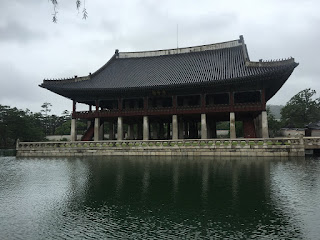"It is Challenging, but extremely rewarding!"
Megan Rourke, a Sociology major from the University of Stirling spent two semesters at UAF as an exchange student. The Scot, who grew up in a small village outside Edinburgh, lived and went to school there for most of her life. After high school when she turned 18, she went travelling around Tanzania, Australia and South East Asia for a year
and half before coming home and starting school at the University of Stirling. She says "I had definitely caught the travel bug and spent time in different cities across Europe throughout my study and picked my degree
program based on whether it had an exchange opportunity!"

She had a few universities in the United States on her list where she wanted to study as an exchange student, eventually deciding to go to UAF in the Fall of 2014. She says, "Looking back at it now, I can’t
imagine having gone anywhere else. I was only supposed to be in Fairbanks for
one semester between September and December but I ended up falling in love with
the city and the school, got a job as a Resident Assistant on campus, and luckily, was able to extend
and ended up staying until June"
Megan and the author light- writing an abbreviation of "Alaska"
Elaborating on the academics and research in the department of sociology at UAF, she says, "The sociology program at UAF gave me
amazing chances to explore social research and I ended up presenting a
research poster on the ethics of dog sledding"
(L) Megan and her poster on the ethics of dog sledding with her colleague Britta. (Top) Megan with puppies at a sled dog kennel
She also received a grant to study
Title IX legislation and it’s applications on campus and went on to attend the Pacific
Sociological Conference in Los Angeles, California.
With all these opportunities manifesting within a span of a few months, she says, "These were crazy opportunities that I am incredibly
grateful for because they prepared me for my graduation dissertation here in Stirling.
Also, my involvement in Sociology club brought to my attention the importance
of tackling issues such as domestic violence and sexual assault and I was able
to work with some amazing people to organize ‘Run for Respect’, a 5K that
raises awareness and money for the local women’s shelter"
(R) Megan (2nd, from Right) with the organizers for "Run for Respect"

(L) Megan with her team of Resident Assistants donating clothes at a shelter
(R) Megan with the Berman Excellence in Sociology award for her research in Title IX
How was your experience travelling around Alaska and the Lower 48?
In her first semester she took every opportunity to experience
Alaska, taking road trips to Anchorage and Seward. "There were so many different things that I had never experienced before like
snowshoeing and ice climbing with UAF Outdoor Adventures."
Megan on a road trip to see Denali (L) and on the Gulkana Glacier (R)
"And amongst the other
exchange students you could always find someone who was up for a weekend trip-
for Thanksgiving a bunch of us got a car and a cabin and went dog sledding, to
hot springs and learned how to drive on ice!"
"After finishing at UAF I flew down to Los Angeles. It's an extremely long trip between Edinburgh and Fairbanks so I thought I'd make the most of the remaining days on my Visa. We did a road trip around California which was amazing! The weather was beautiful and we drove up the coast to San Francisco and went as far as Napa which I fell in love with. I'll be back in the next few years to see friends, I've got my sights set on Arizona next and I'm sure I'll make it to Louisiana one day!
How was your first Alaskan Winter?
"The climate made Alaska for me, it was like nothing I've
ever experienced before. In Scotland, winter means grey, wet and 'dreich' to
use the Scottish word. So to walk out everyday and see the sun shining with
snow on the ground was lovely. The short days were unusual at first but I got
used to them and I invested in some good layers and learned what merino wool
is!
Now that you are back in Scotland, what do you miss about Alaska?


Megan in Scotland, rowing for her home university
"I
miss the compact campus. Stirling is a small city and I only have to get a 10
minute bus ride to get to campus, but I loved that UAF was a hub with
everything within walking distance- all the dorms, the school buildings, the gym,
the dining hall. I also miss my classes- the structure was very different at
UAF, rather than lectures, in my classes we often openly debated the issues we
were discussing meaning everyone was much more engaged. I also miss the Alaskan
lifestyle! Everyone in Fairbanks was so friendly and welcoming."
Would you recommend students to study abroad?
"Absolutely! For so many reasons, to experience a different
culture, to learn through a different structure and really just to put yourself
in a brand new situation and have to build your life there from scratch- It is challenging but extremely rewarding."
Describe UAF in one word.
Community.
_______________________________________________________________________________
Megan is currently in the middle of her dissertation and will
graduate in June 2016. After that she plans to spend the summer with her family and would
love to get some work experience under her belt by doing an internship or volunteering in victim advocacy and the third
sector before travelling again.































